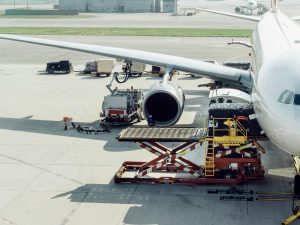Ramanathan Rajamani, CEO of AISATS said, “Our biggest learning from 2025 is that India’s aviation sector has entered a phase where growth is no longer linear. Passenger mobility, cargo volumes, and airline networks expanded at a pace that required not just capacity, but systems, predictability, and discipline. This year made it clear that safety, technology, and a skilled workforce must work together as one integrated operating model. We saw this firsthand across our network, from smooth rollouts in Kochi and Raipur to rising cargo movement in high-potential southern and northern markets. Digital solutions such as our real-time resource allocation platform, mobile-enabled passenger platforms, and cargo digitisation tools proved that technology is now a foundational part of operational resilience. Another key insight is that regional India is becoming central to the aviation map; markets like Kerala, Uttar Pradesh, and Telangana have seen rapid traffic and cargo growth, reflecting a wider economic shift. Above all, 2025 reinforced the value of trust. We earned it through consistent performance, our safety-first culture, and our commitment to building the next generation of aviation infrastructure. It has been a year of learning, confidence-building, and preparing for an even more ambitious 2026.”
Read More »Saudia Cargo extends WFS handling partnership across Europe & US
Saudia Cargo has renewed and extended its partnership with Worldwide Flight Services (WFS) for cargo handling services at eight major international gateways across Europe and the United States. Under the extended agreement, WFS will continue to provide services at key European hubs including Amsterdam Schiphol, Brussels, Frankfurt, Paris Charles de Gaulle, London Heathrow, and Manchester, as well as at New York JFK and Washington Dulles in the US. The renewal builds on a long-standing collaboration between the two companies, which was first established at these locations in 2019 and most recently extended in February 2023. The latest contract was formally signed at a ceremony in Jeddah by Saudia Cargo chief executive and managing director Loay Mashabi and John Batten, chief executive of Gateway Services for Europe, the Middle East, Africa and Asia at SATS-owned WFS. Saudia Cargo said WFS’s established presence at these strategic international hubs will continue to play a key role in supporting the airline’s global expansion strategy and ensuring seamless connectivity for customers worldwide.
Read More »AEI secures DGCA approval for 737-800SF conversion
Aeronautical Engineers, Inc. (AEI) has received Supplemental Type Certificate (STC) approval from India’s Directorate General of Civil Aviation (DGCA) for its Boeing 737-800SF freighter conversion. The DGCA approval for the 737-800SF STC (ST02690LA) builds on a growing list of validations already granted by global aviation authorities, including the FAA, CAAC, EASA, TCCA, UK CAA, CAACI (Cayman Islands), DCA (Guernsey), as well as Brazil’s and Argentina’s ANACs, the Miami-based conversion specialist said. The approval follows Chennai-based cargo carrier Afcom Holding’s lease of a previously converted AEI 737-800SF (MSN 33003). Afcom will operate the aircraft from India on routes across Asia. According to AEI, the lease arrangement prompted the company to pursue DGCA validation. Commenting on the milestone, Robert Convey, AEI’s senior vice president of sales and marketing, said the approval will open the door for Indian cargo operators to access AEI’s 737-800SF, offering a cost-effective pathway to improved profitability.
Read More »Air cargo rates climb as peak season builds, though volatility eases: WorldACD
According to the WorldACD report, early December data indicates a continued upward trend in air cargo spot market pricing, with rates rising in the first week of the month. However, this year’s peak season has been noticeably less volatile than in recent years. The report suggests, international spot rates in week 49 increased by 3 per cent compared with the final week of November, reaching an average of $3.01 per kg—an expected seasonal uplift as the year-end peak approaches. The week-on-week increase was driven primarily by an 11per cent rise in rates from African origins, alongside a 6per cent increase from Europe and a 4per cent gain from Asia Pacific, WorldACD reported. In contrast, spot prices from Central and South America (CSA) declined by 7 per cent week on week. This drop was largely attributed to the conclusion of Chile’s cherry export season, which had previously pushed rates higher, particularly on routes serving strong demand from China. Looking more closely at Asia Pacific, spot rates from China to the US continued their recovery in week 49 following a turbulent year influenced by shifting tariff policies. Rates on this lane rose by 8 per cent week on week to $6.82 per kg—the highest level recorded this year and slightly above the same period in 2023.
Read More »IATA Survey shows strong industry momentum behind ONE Record
A recent survey conducted by the International Air Transport Association (IATA) indicates significant levels of awareness and readiness across the air cargo industry for ONE Record, which is set to become the preferred standard for cargo data exchange among IATA members from January 1. According to the survey findings, 70 per cent of respondents are aware of ONE Record, while 50 per cent have indicated readiness to adopt the standard, underscoring growing industry alignment toward a unified data-sharing framework. Commenting on the results, Brendan Sullivan, IATA’s Global Head of Cargo, said that the industry’s direction is clear, with stakeholders moving decisively toward ONE Record and seeking stronger support from IATA as adoption accelerates. He added that IATA will expand opportunities for participation in ONE Record pilot projects, enhance adoption guidance, and work closely with regulators and IT providers to ensure alignment across the ecosystem. The ONE Record standard establishes a single digital language for air cargo, enabling seamless connectivity and data exchange among all partners. Its adoption is expected to modernize air cargo processes, improve transparency, and deliver greater value to customers across the global supply chain.
Read More »Softlink Global unveils next-gen AI & automation capabilities
Softlink Global has announced the launch of advanced AI and automation capabilities within its Logi-Sys platform, reinforcing its commitment to driving intelligent digital transformation in logistics. The unveiling session, led by Kunal Maheshwari, Chief Growth Officer, highlighted four key innovations designed to elevate efficiency and decision-making for freight forwarders. The new enhancements include Process Acceleration through AI-powered document reading, enabling faster and more accurate handling of operational documentation; Smarter Data Analytics offering predictive and conversational insights for informed decision-making; Predictive Tracking Visibility that delivers accurate arrival forecasts; and a 24×7 Digital Employee capable of automating critical business actions round the clock. Together, these advancements mark Softlink Global’s evolution from traditional digital logistics to intelligent logistics, empowering freight forwarders with faster decisions, improved efficiency, and smarter, more resilient operations in an increasingly complex global supply chain.
Read More »Cargo Flash, RwandAir Cargo partner to boost digital efficiency
Cargo Flash Infotech has entered into a strategic partnership with RwandAir Cargo to implement its next generation nGen Integrated Cargo Management System (ICMS). This collaboration marks a significant milestone in RwandAir’s digital transformation journey, aimed at enhancing efficiency, transparency, and service reliability across its cargo operations. The fully cloud-based nGen ICMS will automate and seamlessly integrate the entire cargo workflow, offering real-time shipment visibility, end-to-end process integration, and centralized data access. These capabilities will enable faster, more informed decision-making while improving overall operational agility and customer experience.
Read More »GSV, Amazon sign MoU to boost express deliveries across India
Gati Shakti Vishwavidyalaya (GSV) has signed MoU with Amazon to foster knowledge sharing, joint development of academic curricula, and collaborative research initiatives. A key highlight of this partnership is the establishment of an Amazon Chair Professorship at GSV, along with focused research on the warehousing sector using data-driven decision-making frameworks. Prof. Manoj Choudhary, Vice Chancellor, Gati Shakti Vishwavidyalaya, reaffirmed the university’s commitment to shaping the future of India’s logistics ecosystem through rigorous research and specialised talent development. As the country’s only university dedicated exclusively to the logistics and transportation sector, GSV aims to bridge academia and industry in meaningful ways. He further noted that the collaboration with Amazon India, a global leader in logistics and supply chain innovation, will bring valuable industry perspectives to the university. This partnership is expected to strengthen informed planning, design, and innovation across logistics and transportation through co-working projects, thereby contributing to the development of future-ready professionals and solutions for the sector.
Read More »‘Freighter shortage becomes a critical industry challenge’
Gautham Raju, Air Freight Specialist, said, “Global air freight industry is facing a freighter shortage due to rising cargo volumes, demand overlapping available capacity and increase in passenger traffic during recent trends increasing the payloads. Belly capacity was once a reliable supplement; it is no longer enough to meet the current surge in e-commerce and trade activity. With cargo demand expected to continue growing with initiatives, such as Make in India and new investments coming into the country, the need for more freighters is the need of the hour. Industry experts warn without more capacity, delays and congestion will worsen, impacting global supply chains and economies. As the demand for cargo space continues to rise, Indian Airlines fraternity should keep a close eye on fastening their orders and increase them based on needs.”
Read More »‘India needs freighters to power Its export surge’
CK Govil, CMD, Activair Airfreight, said, “India’s growing manufacturing, e-commerce and pharma sectors require freighters to ensure reliable, time-definite global connectivity. Belly capacity alone cannot support rising export demand from tier II and III cities. Freighters enable point-to-point uplift, temperature-controlled movement, and seamless integration with multimodal hubs. To make India a cargo powerhouse, expanding capacity is not optional — it is an immediate necessity.”
Read More » Cargo Breaking News
Cargo Breaking News









